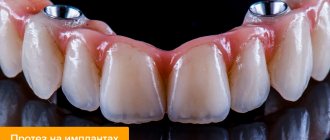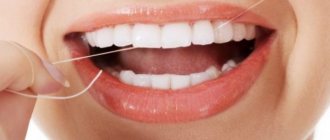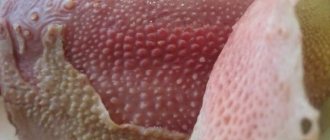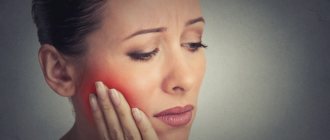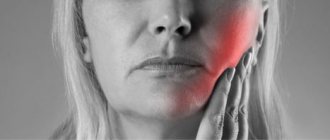The branch of dentistry such as orthodontics continues to develop. Today, there are many different orthodontic treatment methods that help not only improve the aesthetic appearance of the smile, but also normalize the function of the jaws.
Medicine does not stand still; orthodontics is developing more and more every year. Patients become more knowledgeable about smiles and attractiveness. More and more patients are complaining about a narrow smile; they want others to see as many teeth as possible when smiling. How and due to what, and most importantly at what age and what can an orthodontist do? Expansion of the upper jaw can be divided into conservative and surgical. It can also be divided into treatment in childhood, in mixed dentition and in adulthood when all teeth are permanent
Expansion of the upper jaw is indicated in the following cases:
- Micrognathia is underdevelopment of the upper jaw. It may be a consequence of rickets, endocrine diseases, injuries, too early loss of milk or permanent teeth, etc.
- Narrowing of the dentition of the upper jaw , resulting in a pathological crossbite.
- Difficulty in nasal breathing due to insufficient volume of the nasal cavities.
- Mesial occlusion.
- Protrusion of incisors.
Next, we will tell you what methods of expanding the upper jaw exist, what types of non-removable devices there are and what a non-removable plate for expanding the upper jaw is, as well as how the expansion is carried out surgically (surgery).
How often should you visit the orthodontist during treatment and then what?
You need to come to the clinic for device correction on average once every 6 weeks. The correction consists of freeing up space in the plates for the eruption of permanent teeth.
After completing treatment, it is recommended to visit the orthodontist for the first time after six months.
Whether the patient will need orthodontic treatment in the future depends on the stability of the result obtained, which is influenced by many factors, one of which is a possible growth spurt in the child.
Our story has come to an end.
Other examples of orthodontic treatment can be found on the personal page of Irina Konstantinovna Shevchenko.
You will get a lot of useful information from the articles:
- Orthodontics. Why, When and How to correct malocclusion
- A child’s beautiful smile is the care of loving parents
- Correction of distal and mesial bite using additional orthodontic equipment
If you decide to consult with an orthodontist, make an appointment with Irina Konstantinovna Shevchenko >>
Conservative treatment methods, or a fixed device for expanding the upper jaw
In children, the most effective way to expand the upper jaw at the moment is a plate with a screw in the structure. The plates are removable and non-removable. All scientific studies show that an orthodontic structure works most effectively only if it is in the mouth for at least 24 hours a day, hence the conclusion that a non-removable technique works much more effectively than a plate that a child can remove at school, rest, lose, and so on. .
Price list for Orthodontic treatment
| Name of service | Price |
| Consultation with an orthodontist | 1000 ₽ |
| Diagnostic visit to an orthodontist with drawing up a treatment plan | 4400 ₽ |
| Production of control diagnostic models | 2000 ₽ |
| Single jaw orthodontic plate | 16000 ₽ |
| Double-jaw orthodontic appliance | 23000 ₽ |
| Orthodontic trainer | 17200 ₽ |
| Palatal expansion device | 28000 ₽ |
| Metal bracket system | 35000 ₽ |
| Sapphire bracket system | 55000 ₽ |
| Damon Q bracket system | 65000 ₽ |
| Damon Clear bracket system | 70000 ₽ |
| Activation of the bracket system (1 jaw) | 3000 ₽ |
| Removing the bracket system from one jaw | from 4300 ₽ |
| Retainer installation | 5100 ₽ |
| Diagnostics of treatment using StarSmile aligners Diagnostics includes: taking impressions of the jaws, photo protocol, image analysis (CT and TRG), treatment planning, building a computer model (Setup model) of the final result. You can learn about correcting your bite with orthodontic aligners in the article “You don’t need braces if aligners help!” | 10000 ₽ |
| Treatment with aligners. Correction of “light” defects (5-10 drops) | 80000 ₽ |
| Treatment with aligners. Correction of “medium” defects (11-20 caps) | 190000 ₽ |
| Treatment with aligners. Correction of “complex” defects (more than 21 caps) | 220000 ₽ |
| Re-making the mouthguard | 7500 ₽ |
HAAS device
The most common and convenient to use for both parents and doctors is the non-removable HAAS device. The device is fixed to the temporary teeth on the upper jaw by an orthodontist; it is absolutely invisible to others, but clearly and quickly performs its task. The most successful and appropriate time to work on it is when the central incisors are replaced with permanent ones, i.e. at the age of 7-8 years. The expansion of the upper jaw is carried out through the work of a screw, which the parents themselves tighten based on the recommendations of the attending physician.
Wearing the device and care
The child can put on and take off the device independently, but this is not only a plus, because the result of the treatment begins to greatly depend on the child’s discipline.
It is easy to care for the device. No special cleaning products are required: regular toothpaste and a brush will do.
A temporary storage container is provided with the Twin block. And of course, the orthodontist provides instructions on how to wear the device, care, and issues a reminder “what to do if.”
Surgical expansion of the upper jaw
The surgical method for correcting the width of the upper dentition is that for an older patient and with the most pronounced defect of the upper jaw, the surgeon installs an apparatus in the area of the palatal suture, which carries out the “growth and expansion” of the jaw. Surgical expansion of the maxilla is the most effective method of expansion, although it is somewhat traumatic.
The device installed during the operation can be activated only on the third day. The first activation is carried out by the attending physician, and later this procedure can be carried out by the patient himself at home. The installed palatal expander must be worn for approximately 3-4 months after the maxillary expansion surgery has been performed.
In any case, the choice of method and determination of the period depends on the clinical picture, the desire of the patient and the capabilities of our dentofacial system.
Correction of any bite problems in children by our pediatric orthodontists:
- treatment with a smile, no stress for the child, no discomfort
- accurate diagnosis of more than 50 parameters before bite treatment
- treatment using both removable and non-removable equipment
- 100% solution to the problem of maxillary expansion
- noticeable treatment results after 2.5 months.
How is jaw expansion carried out in children and adults?
There are conservative methods that allow you to expand the dentition without surgical intervention. In most cases, the use of plates and fixed devices gives a stable and long-lasting result, but patients with complex pathologies require surgical correction.
The devices act systematically and delicately, so they do not cause pain to an adult or child. Under the influence of a slight force, the teeth move smoothly and the structure of the bone tissue is transformed. As a result, the narrowed dental arch increases.
How does a jaw expansion plate work?
Plates are recommended for bite correction at the age of 5-11 years, which makes it possible to cope with complex defects in the jaw relationship during the development and growth of bones. Plates for jaw expansion for children are made personally. After correction is completed, additional permanent structures may be required.
The orthodontic plate with screws consists of a steel spring and a part with a sectoral cut. To flatten the anterior part, the plate is equipped with vestibular arches. A removable appliance is fixed with clasps, a non-removable one is fixed with crowns installed on molars or premolars.
When is a jaw retraction device used?
A device for jaw expansion is used in cases where braces or plates will not give the desired result due to lack of space in the dental arch or congenital anomalies of the oral cavity. The device consists of rings that are installed on the lateral teeth and connected by arches. There is a screw in the central zone, the movement of which activates the operation of the device.
Under the influence of pressure, the median palatal suture opens and the jaw expands. The gap is quickly closed with restored bone tissue. In case of treatment of a child
Excellent results are possible, since as the patient grows older, the palatal suture becomes hard and more difficult to open. When treating adults, preliminary surgical dissection of the palatal suture will be required. During the correction process, the orthodontist often works together with the surgeon.
Main functions of the palatal expander
Palatal expanders are used to correct the upper jaw. The device has the shape of a cross, each edge of which is attached to the molars, and in the central zone there is a working sliding part.
Correcting the bite with a palatal expander in children will take about three weeks, but for adult patients this process may require a longer period. The cost of jaw expansion is offset by the result obtained: the gap is gradually filled with new bone tissue.
Mandibular distraction systems
Expansion of the mandible is performed using distractors. The devices ensure gradual divergence of the dentition with the simultaneous formation of new tissue. This method of correction gives a particularly pronounced result in childhood. In adult patients, dissection of the central zone of the lower jaw with an ultrasonic scalpel is required.
Devices of various types have unique designs, depending on the purposes and conditions of use. Many devices are suitable for treating adults and very young children. Such age-related indications make it possible to correct many congenital jaw anomalies in advance.
Based on: 7 votes
Promotions valid today:
White teeth in 45 minutes
Health as a Gift
Share the link:
- Click here to share content on Facebook. (Opens in a new window)
- Click to share on WhatsApp (Opens in new window)
pediatric dentistry, orthodontics, topic articles: Herbst apparatus, distal bite, bite correction, face bow, face mask, mesial bite, microimplants, palatal clasp, palatal expander
You know why you endure temporary inconvenience!
The devices we talked about today complicate the life of a person wearing braces, but if you follow the doctor’s recommendations, you don’t need to wear additional devices for very long.
In conclusion of the article, we would like to draw the attention of young parents to the importance of preventing defects of the dental system in children and the timely initiation of orthodontic treatment.
By following the recommendations of orthodontists, you can avoid the use of corrective equipment in adulthood. You will find out what these recommendations are by reading the article A beautiful smile of a child is the care of loving parents.
Orthodontists at NORD DENTAL clinics are ready to work hard and make your smile beautiful!
Sign up for a consultation and come >>
